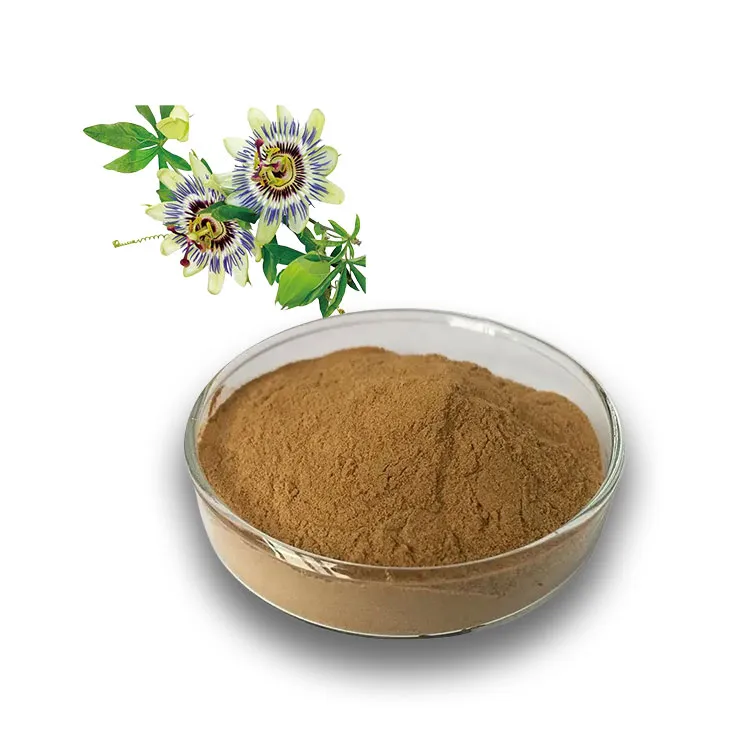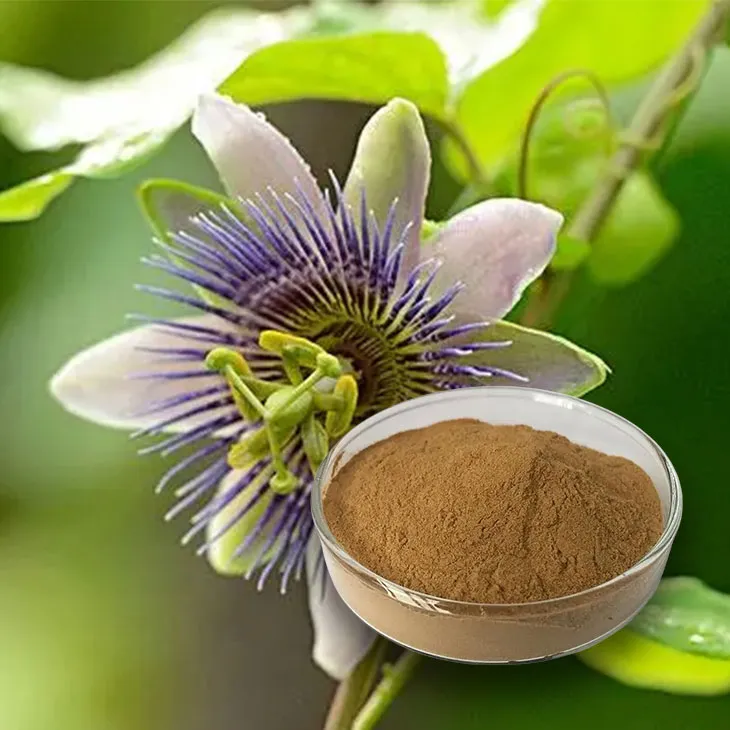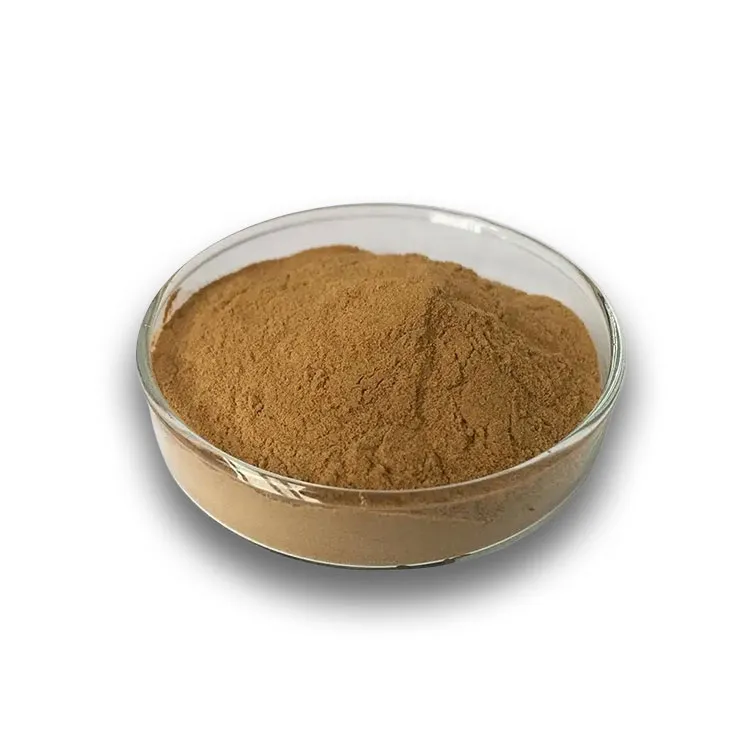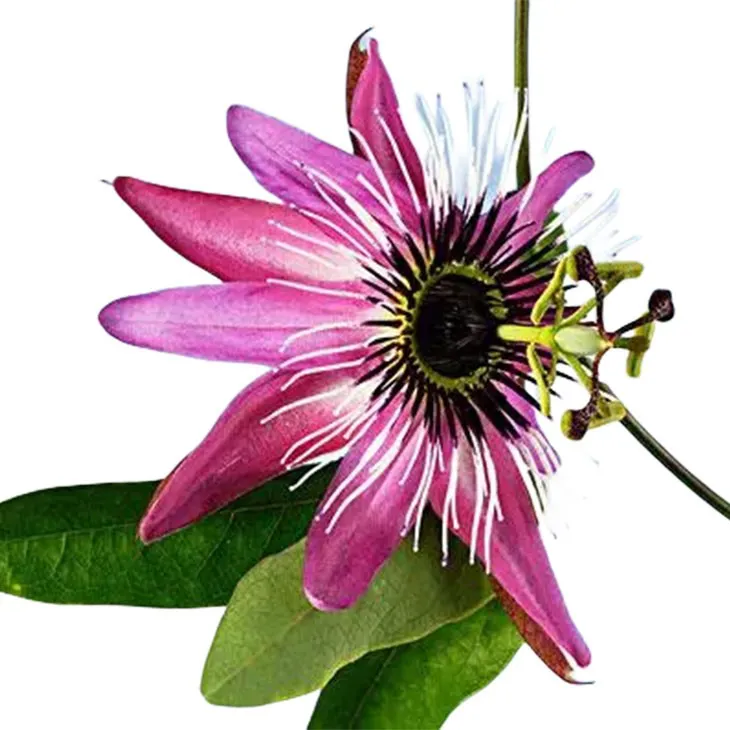- 0086-571-85302990
- sales@greenskybio.com
Understanding the Private Label of Passionflower Extract: A Comprehensive Guide
2024-12-18

1. Introduction
Passionflower Extract has emerged as a highly interesting and valuable substance in recent years. It has captured the attention of researchers, consumers, and industries alike. This guide will delve deep into the world of Passionflower Extract, specifically focusing on its private label aspects. By exploring its origin, extraction methods, components, health benefits, and applications, we hope to provide a comprehensive understanding of this remarkable extract.

2. Origin of Passionflower
Native Regions
Passionflower is native to the Americas, with a wide distribution across regions such as South America, Central America, and parts of the southern United States. In South America, countries like Brazil, Argentina, and Peru are home to various species of passionflower.
Cultivation
Today, passionflower is also cultivated in other parts of the world. It is grown in tropical and subtropical regions for both ornamental and medicinal purposes. The plant thrives in well - drained soil and requires a sufficient amount of sunlight.

3. Extraction Methods
Solvent Extraction
One of the common methods of extracting Passionflower Extract is solvent extraction. Organic solvents such as ethanol or methanol are often used. The passionflower plant material is soaked in the solvent, which helps to dissolve the active compounds. After a period of soaking, the solvent is then separated from the plant material, usually through filtration or distillation. The resulting liquid contains the passionflower extract along with the solvent, and further steps may be required to purify the extract.
Supercritical Fluid Extraction
Supercritical fluid extraction is a more advanced method. In this process, a supercritical fluid, typically carbon dioxide (CO₂), is used. CO₂ is maintained at a specific temperature and pressure above its critical point, where it exhibits properties of both a gas and a liquid. This supercritical CO₂ can effectively extract the active components from the passionflower without leaving behind harmful residues. It is a relatively clean and efficient extraction method, and the resulting extract is often of high quality.

4. Components of Passionflower Extract
Flavonoids
Flavonoids are a major group of compounds found in passionflower extract. These include apigenin, Quercetin, and kaempferol. Flavonoids are known for their antioxidant properties. They can help to neutralize free radicals in the body, which are unstable molecules that can cause damage to cells and contribute to various diseases.
Alkaloids
Passionflower also contains alkaloids, such as harmine and harmaline. These alkaloids may play a role in the plant's potential medicinal effects. For example, they may interact with the central nervous system in ways that are relevant to its relaxing and stress - relieving properties.
Terpenes
Terpenes are another class of compounds present in passionflower extract. They contribute to the plant's aroma and may also have biological activities. Some terpenes have been shown to have anti - inflammatory and antimicrobial properties.

5. Potential Health Benefits
5.1 Relaxation and Stress Reduction
One of the most well - known potential health benefits of passionflower extract is its role in promoting relaxation and reducing stress. The alkaloids and flavonoids in the extract may act on the nervous system to have a calming effect. Some studies have suggested that passionflower extract can be as effective as certain prescription medications in reducing anxiety symptoms, but with potentially fewer side effects.
5.2 Sleep Improvement
Due to its relaxing properties, passionflower extract may also be beneficial for improving sleep. It can help to calm the mind and relax the body, making it easier to fall asleep and stay asleep. This may be particularly useful for people with insomnia or other sleep disorders.
5.3 Antioxidant Activity
As mentioned earlier, the flavonoids in passionflower extract are antioxidants. By neutralizing free radicals, the extract may help to protect the body from oxidative stress. This can have a wide range of implications, from reducing the risk of chronic diseases such as heart disease and cancer to slowing down the aging process.
5.4 Anti - Inflammatory Effects
The terpenes and other compounds in passionflower extract may have anti - inflammatory effects. Inflammation is a key factor in many diseases, including arthritis and certain autoimmune disorders. By reducing inflammation, passionflower extract may help to alleviate symptoms and improve overall health.
6. Applications in Different Industries
6.1 Food Industry
- Beverages Passionflower extract can be used in the production of various beverages. It can be added to herbal teas, providing a unique flavor and potential health benefits. Some functional drinks also incorporate passionflower extract for its relaxing and antioxidant properties.
- Desserts In the dessert industry, passionflower extract can be used to flavor ice creams, yogurts, and other sweet treats. It adds a distinct floral flavor that can enhance the overall taste experience.
6.2 Pharmaceutical Industry
- Anxiety and Stress - Related Medications Given its potential in reducing anxiety and stress, passionflower extract may be used as an ingredient in medications or natural supplements for these conditions. It can be formulated into tablets, capsules, or tinctures for easy consumption.
- Sleep Aids As it has the potential to improve sleep, passionflower extract can also be used in the development of sleep - aid products. These can range from over - the - counter natural sleep supplements to prescription medications.
6.3 Cosmetic Industry
- Skincare Products The antioxidant and anti - inflammatory properties of passionflower extract make it suitable for use in skincare products. It can be added to creams, lotions, and serums to help protect the skin from environmental damage and reduce inflammation. This may result in improved skin health, such as reducing redness, wrinkles, and acne.
- Haircare Products In haircare products, passionflower extract can be used to improve the health of the hair. It may help to strengthen the hair follicles, reduce hair loss, and add shine to the hair.
7. Conclusion
Passionflower extract is a fascinating substance with a wide range of potential applications. Its origin, extraction methods, components, health benefits, and industry applications all contribute to its growing importance. Whether it is in the food, pharmaceutical, or cosmetic industry, passionflower extract has the potential to offer unique benefits. However, further research is still needed to fully understand its mechanisms of action and to ensure its safe and effective use. With continued exploration, the private label of passionflower extract is likely to gain even more significance in the future.
FAQ:
What is the origin of West Passionflower extract?
The West Passionflower is native to the Americas, particularly in regions like South and Central America. It grows in warm and tropical climates. The extract is obtained from this plant, which has been used in traditional medicine in these areas for centuries.
How is the Passionflower extract obtained?
The extraction of Passionflower extract typically involves several methods. One common method is solvent extraction. In this process, a suitable solvent such as ethanol or water is used to dissolve the active compounds from the plant material. After extraction, the solvent is removed, leaving behind the concentrated extract. Another method could be steam distillation, which is mainly used to obtain essential oils from the plant if applicable. However, for the broader range of active components in the Passionflower extract, solvent extraction is more commonly used.
What are the main components in the Passionflower extract?
The Passionflower extract contains a variety of components. Some of the important ones include flavonoids, which have antioxidant properties. Harman alkaloids are also present, which are believed to contribute to its relaxation - inducing effects. Additionally, there are phenolic compounds that play a role in its potential health - promoting activities.
How does Passionflower extract promote relaxation?
Passionflower extract is thought to promote relaxation through several mechanisms. The harman alkaloids present in it may interact with the central nervous system receptors, which can help reduce anxiety and induce a sense of calm. Also, its antioxidant properties from flavonoids may help reduce oxidative stress in the body, which in turn can have a positive impact on the nervous system and contribute to relaxation.
What are the applications of Passionflower extract in the food industry?
In the food industry, Passionflower extract can be used as a natural flavoring agent. It can add a unique and pleasant flavor to various food products. Additionally, due to its potential health - promoting properties, it can be added to functional foods or dietary supplements in the form of extracts or powders. For example, it could be incorporated into energy bars or herbal teas to provide a relaxing effect along with other nutritional benefits.
Related literature
- The Chemical Composition and Pharmacological Properties of Passionflower Extract"
- "Passionflower Extract: A Review of its Traditional Uses and Modern Applications"
- "The Role of Passionflower Extract in Stress Management and Relaxation"
- ▶ Hesperidin
- ▶ Citrus Bioflavonoids
- ▶ Plant Extract
- ▶ lycopene
- ▶ Diosmin
- ▶ Grape seed extract
- ▶ Sea buckthorn Juice Powder
- ▶ Fruit Juice Powder
- ▶ Hops Extract
- ▶ Artichoke Extract
- ▶ Mushroom extract
- ▶ Astaxanthin
- ▶ Green Tea Extract
- ▶ Curcumin
- ▶ Horse Chestnut Extract
- ▶ Other Product
- ▶ Boswellia Serrata Extract
- ▶ Resveratrol
- ▶ Marigold Extract
- ▶ Grape Leaf Extract
- ▶ New Product
- ▶ Aminolevulinic acid
- ▶ Cranberry Extract
- ▶ Red Yeast Rice
- ▶ Red Wine Extract
-
Nutmeg Extract
2024-12-18
-
Rosemary extract
2024-12-18
-
Stevia Extract
2024-12-18
-
Grape Seed Extract
2024-12-18
-
Saffron Extract Powder
2024-12-18
-
Lemon Balm Extract
2024-12-18
-
Artichoke Leaf Extract
2024-12-18
-
Curcuma Longa Extract/Turmeric extract
2024-12-18
-
Purple Sweet Potato Extract
2024-12-18
-
Okra Extract
2024-12-18





















